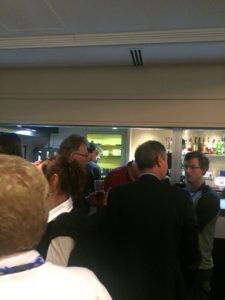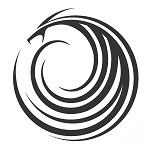A few years back, I had an odd problem with my car. Once you hit around 60mph, it would suddenly go into “limp home” mode and only drive at snail’s pace until you started and stopped the engine.
As you might imagine, this caused some problems with highway driving. In particular, other drivers seemed unsurprisingly annoyed when I would pull out to overtake before the car would take matters into its own hands. At this point I would end up slowly driving alongside them before dropping in behind them again very slowly. It looked like I was attempting to start the world’s slowest drag race.
Buckle up, this could be a long journey
I limped over to the shop to get it looked at. The mechanics looked at it, stroked their chins, and told me that this was a complex problem. It would take hours of diagnostic work, and was not going to be cheap to track down. I didn’t like the sound of that.
So I did the obvious thing that any engineer (especially a cheapskate one) would do. I Googled the problem. Within half an hour of research I found a likely culprit: A pin hole leak in a vacuum hose for the turbo. Rather than track it down, I replaced all the vacuum hosing in the engine. Low and behold, it worked! I had fixed the car for less than $50.

In the internet age, we do much, if not most, of our data gathering online. If we need to find an answer to a question we don’t know, pretty much all of us do a quick online search.
The collective sum of much of humanity’s learning is in many cases, just a click away. Want to know how to set the timer on your oven? No problems, the owner’s manual is bound to be online. Need to settle a bar room argument about the longest reigning monarch? Don’t worry, Wikipedia’s got your back (spoiler alert – Queen Elizabeth II still has a long way to go).
The point is, that this sheer abundance of information can lead us to assume that the answer to anything we want to know is just a few seconds away.
The internet temptation is always there…
Anyone that works in research and engineering type roles will know that’s not always the case. That said, when we must solve complex problems, particularly if we have reached a fork in the road where we need to make a choice on method, we will often still look online for some guidance.
You might well have encountered this website as a result of looking for a way to solve a specific manufacturing problem, for example. Or perhaps a chain of links in that search has led you here.
There are, however, limits to this. For starters, generally online information is often likely to be biased on one way or another. It also often misses important nuance.
…But humans are often more appealing than computers
More than anything, it lacks a human element that can often inspire us, or help take us that extra step in understanding a solution that otherwise eludes us.
I think there are a few reasons that this is the case. One is that searching online requires knowing what keywords will take you down the path that leads to your solution. If you don’t know the answer, then there’s a good chance that you won’t have these. In fact, sometimes the answer is borne out of what initially appears to be an unrelated question.
Another reason is that there are some answers and some understanding that can be created from an otherwise unavailable collaborative approach.
I’m sure I can’t be the only one who has had a lightbulb moment after having a conversation with someone, not about the issue I’m working on, but a side issue or a combination of subjects. It would seem the subconscious is a powerful tool for us all.
Should we be looking for answers beyond our screens?
It’s for these reasons that I am a big believer that interacting with your peers on a face to face level is hugely important for us all. To that extent, attending technical conferences offers us something that the internet just can’t. It creates an environment where diverse topics are covered in detail, often with people we wouldn’t otherwise regularly interact with.
I will be attending three conferences this year for these very reasons – Turbo Expo in Charlotte, NC, CMSC in Snow Bird, UT, and EPMC in the UK.
Every time I attend these events, I leave brimming with ideas, inspiration from the great things that others have accomplished, and lots of learning that some really smart people genuinely want to share with others.

Of course, you don’t have to attend the same events I am going to (but if you do, make sure you come and say hello!) There’s a myriad of options out there. The key, like everything, is action.
I know that sometimes it’s tempting to stick in the office and continue working on your day to day challenges. We all have deadlines. We all have pressures. But trust me, your answer might lay in a conversation that you wouldn’t otherwise have.
John Kane is President of Wyvern. You can view his LinkedIn profile here.
